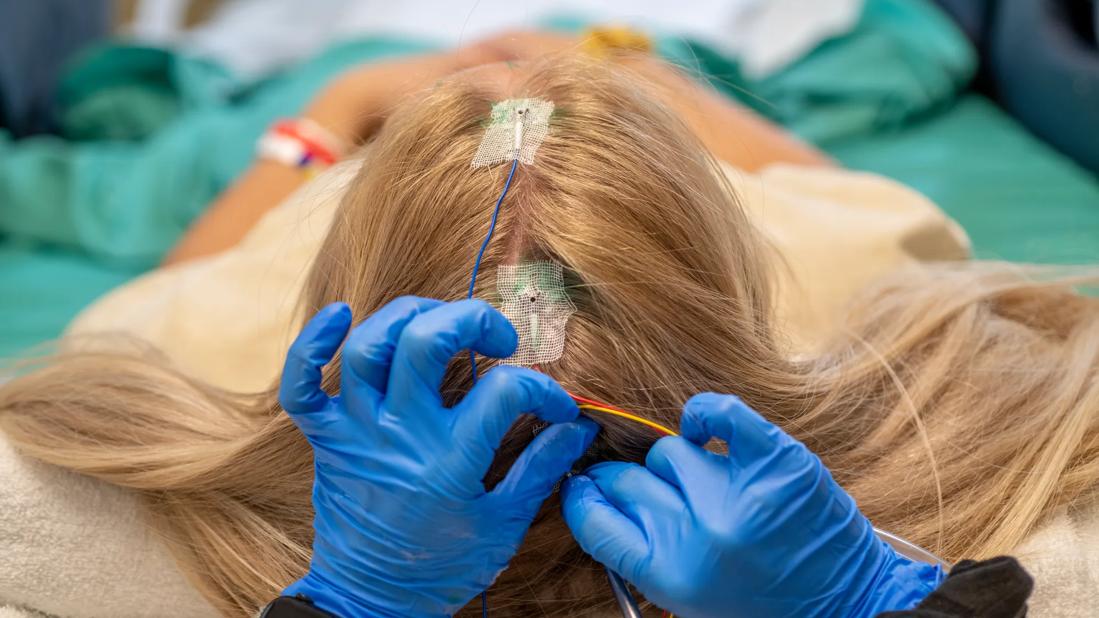Regular screening, counseling and medications are key strategies

Cleveland Clinic psychiatrist Tatiana Falcone, MD, is a national expert focused on the crossroads of two conditions that are too often related and still regarded with uncertainty and suspicion: epilepsy and suicide. Consult QD caught up with Dr. Falcone after the American Psychiatric Association’s 2019 annual meeting, where she spoke on preventing suicide in the consult-liaison psychiatry service.
Advertisement
Cleveland Clinic is a non-profit academic medical center. Advertising on our site helps support our mission. We do not endorse non-Cleveland Clinic products or services. Policy
A: The rate of suicide among patients with epilepsy is staggering — an estimated three to five times higher than in the general population.
This propensity to suicide is attributed to several factors, the most obvious being that people with epilepsy live under very difficult psychosocial circumstances. Many adults struggle to keep a job, and young people face misunderstanding and even bullying from peers at school. The resulting isolation, coupled with the unpredictability and lack of control inherent to a seizure disorder, make it no surprise that anxiety and depression feature prominently in epilepsy.
But epilepsy itself is also believed to contribute to mood disorders, likely because seizures — as well as head traumas that might result from them — damage brain tissue. The longer a person has had epilepsy and the more severe the problem, the higher the risk of suicide.
Finally, the availability of prescription medications provides patients with a means to harm themselves. The most common suicide method among people with epilepsy is overdosing on antiepileptic drugs.
A: First, I regularly screen all my patients with epilepsy for suicide risk — every six months is appropriate, and more often if the patient is deemed at elevated risk. I recommend the Ask Suicide Screening Questions (ASQ) tool, which takes only 10 minutes to administer and has been validated for teens and adults with epilepsy. Developed by the National Institute of Mental Health, it is available free online.
Individuals deemed at imminent risk of suicide are immediately referred for additional assessment.
Advertisement
For those deemed at low immediate risk but who express thoughts of anxiety or depression and have considered suicide in the past, I help develop coping strategies: What are things they can do to feel better when they are low? Together we come up with a list, which might include things like meditation exercises, taking a walk or watching a movie. Actually writing down such a plan or making a “hope box” — containing pictures of loved ones, positive notes and coping resources — can help with adherence.
We also discuss next steps if such techniques prove inadequate. The patient’s action plan must include a list of family, friends and healthcare providers they can call if they need help, as well as a 24/7 suicide prevention hotline number, and they must promise to follow through.
A: That’s a great question, because there are a lot of controversies surrounding medications and epilepsy.
A big one concerns the FDA’s black-box warnings on antiepileptic drugs for increased risk of suicide and suicidal ideation. This association has not been proven to be causal; it’s well known that people with epilepsy have an increased suicide risk, but there is no clear proof that it’s caused or enhanced by their medications. We do know that the possible increased risk found in some studies is small and that it’s critical to a patient’s health to bring epilepsy under control and avoid seizures. It is important to screen for mood disorders, depression and anxiety in people with epilepsy, as these are the more likely causes of increased suicidality in this population.
Advertisement
The use of antidepressant medications is another hot topic. Many doctors are uncomfortable adding mood-altering drugs to antiepileptic medications, so they wishfully think, along with their patients, that depression will lift once epilepsy is brought under control. But multiple studies show that antidepressants are safe and effective in epilepsy and do not increase the risk of seizures. An exception is bupropion, which does lower the seizure threshold and should be avoided. And tricyclic antidepressants should be used with caution.
A: Definitely. There is a persisting stigma attached to epilepsy, so many parents encourage their children and teens to keep their condition a secret from teachers and peers. But I recommend the opposite: Be proactive, by educating students in the child’s classroom and developing an action plan with teachers and staff before a seizure occurs at school.
We created a series of videos and webinars related to pediatric epilepsy that are available free online and cover topics including how to deal with anxiety and tips for school. These resources provide a lot of practical advice for parents and healthcare providers.
Dr. Falcone is a psychiatrist with Cleveland Clinic’s Department of Psychiatry and Psychology and Epilepsy Center. She co-edited a textbook published in 2018, Suicide Prevention: A Practical Guide for the Practitioner, with a chapter devoted to children and adults with epilepsy.
Advertisement
Advertisement

Swift, aggressive thiamin therapy may be key to preventing long-term neurological injury

Case underscores potential dangers of combining psychedelics with tranylcypromine and stimulant medications

Researchers explore how changes in the gut microbiome influence the brain's reward response to alcohol

Researchers explore new avenues for the management of psychiatric illness in patients with seizure disorders

Addiction experts use decades of research and clinical experience to help patients overcome substance use disorders

Specialized course helps APPs navigate clinical concerns and interpersonal skills

Comprehensive mental health screening may help prevent postsurgical risks

The reassuring potential of psychedelics for the management of substance use and treatment-resistant mental health disorders